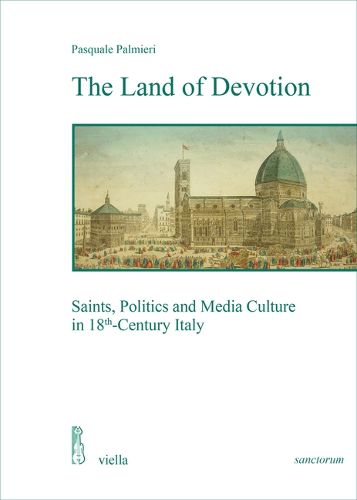Readings Newsletter
Become a Readings Member to make your shopping experience even easier.
Sign in or sign up for free!
You’re not far away from qualifying for FREE standard shipping within Australia
You’ve qualified for FREE standard shipping within Australia
The cart is loading…






In 18th-century Italy a number of priests, preachers, beggars, lay sisters and cloistered nuns crafted provocative and charismatic personae to become revered as saints and champions of the faith. To do so, they and their followers and "fans" made use of compelling narratives, pageantry, rich imagery, and sensational accounts staging their deeds and miracles, creating a media output that often reverberated across social divides. Cults of worship sprang up around these candidate saints, who became unwitting guardians of the status quo in an imaginary "land of devotion" that exploited their narratives to sustain conservative values in the face of strident calls for Enlightenment reform. While ideals of political and cultural innovation dominate the scholarly literature on 18th-century Italy, this book challenges those views and introduces an important counternarrative, charting new frontiers for Enlightenment research.
$9.00 standard shipping within Australia
FREE standard shipping within Australia for orders over $100.00
Express & International shipping calculated at checkout
In 18th-century Italy a number of priests, preachers, beggars, lay sisters and cloistered nuns crafted provocative and charismatic personae to become revered as saints and champions of the faith. To do so, they and their followers and "fans" made use of compelling narratives, pageantry, rich imagery, and sensational accounts staging their deeds and miracles, creating a media output that often reverberated across social divides. Cults of worship sprang up around these candidate saints, who became unwitting guardians of the status quo in an imaginary "land of devotion" that exploited their narratives to sustain conservative values in the face of strident calls for Enlightenment reform. While ideals of political and cultural innovation dominate the scholarly literature on 18th-century Italy, this book challenges those views and introduces an important counternarrative, charting new frontiers for Enlightenment research.